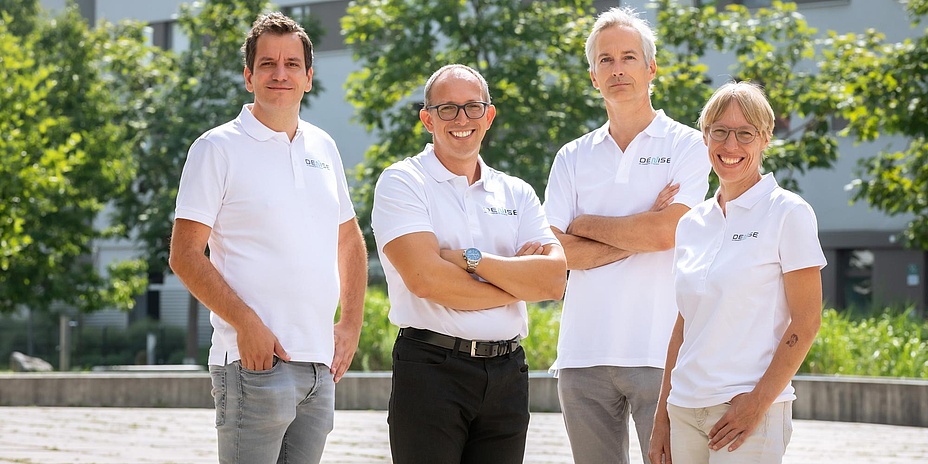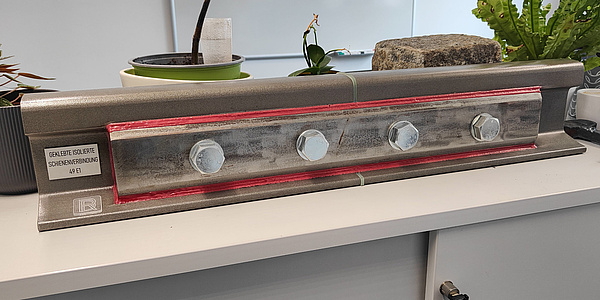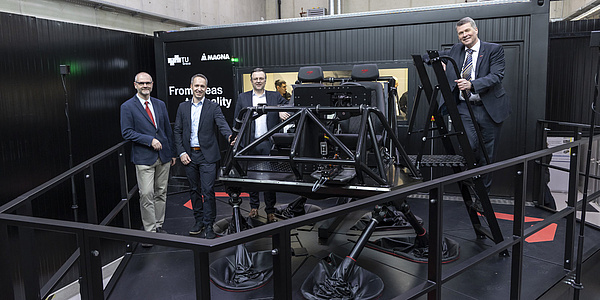Funding in the millions for joint doctoral programme of FH JOANNEUM and TU Graz

DENISE (short for "Dependable ElectroNIcs-Based SystEms") is the name of the doctoral programme under which FH JOANNEUM and TU Graz will train for the first time five doctoral students in EBS research across universities. It is one of altogether five selected cooperative doctorates that the Austrian Science Fund FWF is funding to the amount of one million euros each through the new funding framework "doc.funds.connect". The goals of this funding measure initiated by the Federal Ministry of Education, Science and Research (BMBWF) are intended to advance cooperation between the institutions, strengthen the research competence of the universities of applied sciences and open up further career opportunities for young scientists in highly innovative research fields.
"The cooperation between FH JOANNEUM and TU Graz in the EBS doctoral programme will further strengthen Styria as a research and business location in an important topic of the future. After all, 80 per cent of Austria's value added in microelectronics is already being generated in the southern Austrian federal states," said Barbara Eibinger-Miedl, Styrian Minister for Economic Affairs and Research, commenting on the funding supplement.
DENISE is the responsibility of the head of the Institute of Electronic Engineering at FH JOANNEUM, Christian Vogel, and the head of the Institute of Technical Informatics at TU Graz, Kay Römer. Christian Vogel: "FH JOANNEUM is delighted about this cooperative doctoral programme, which will not only be a bridge between basic and applied research, but also between two institutions that are already closely interlinked."
Research on electronics-based systems for future-oriented applications
The call for applications for the five doctoral study places is international. The four-year doctoral programme will begin in the summer semester of 2022. Research is being conducted into concepts and methods as well as application-oriented tools to make electronics-based systems (EBS) more reliable. EBS are wirelessly networked electronic systems consisting of micro- and nanoelectronic components and embedded software with artificial intelligence. The field of applications ranges from automated driving and smart factories to smart home solutions and other applications where failures can have serious consequences. As Kay Römer explains: "The number of electronics-based systems is growing enormously. They can make areas such as production, infrastructure or transport intelligent and sustainable, but they will only be accepted if people trust these systems. Reliability is therefore becoming the cornerstone for social acceptance of EBS."
The managing directors of FH JOANNEUM, Karl Peter Pfeiffer and Martin Payer: "DENISE deepens the already very good relationship between TU Graz and FH JOANNEUM through a joint doctoral programme and creates an integrated research framework across disciplinary boundaries. Existing strengths will be built upon and by pooling complementary expertise, DENISE will lead to sustainable progress in the EBS sector."
"With the joint doctoral programme, TU Graz and FH JOANNEUM are sending out another strong signal for Austrian industry and electronics research, thus underpinning the role of southern Austria as one of the leading regions of electronics-based systems," says TU Graz Rector, Harald Kainz, alluding among other things to the University's own EBS Center and flagship companies, such as Infineon, ams, NXP, AT&S, TDK Electronics (formerly EPCOS), as well as the Graz headquarters of Silicon Austria Labs at TU Graz's Campus Inffeldgasse.
Kontakt
Contact and coordination at TU Graz
Kay RÖMER
Univ.-Prof. Dipl.-Inform. Dr.sc.ETH
Institute of Technical Informatics
Phone: +43 316 873 6400
roemer@tugraz.at




